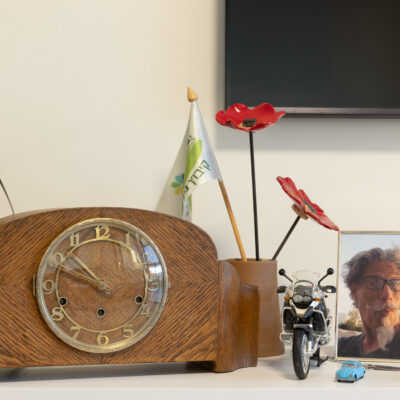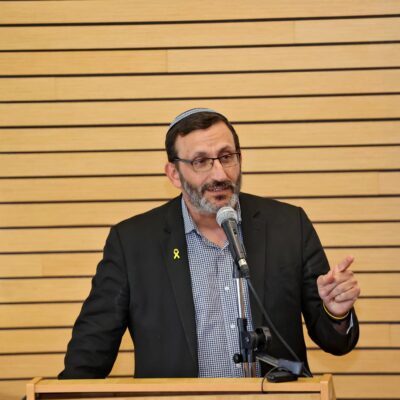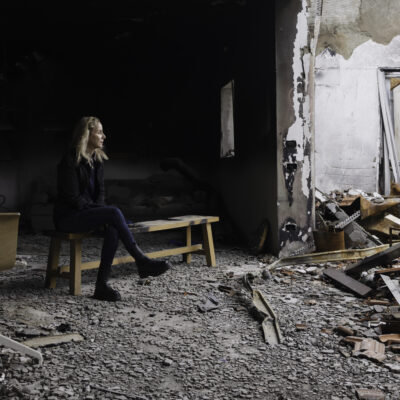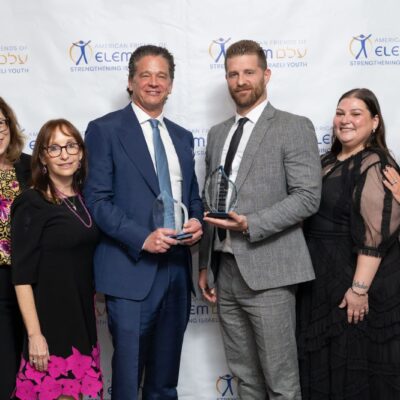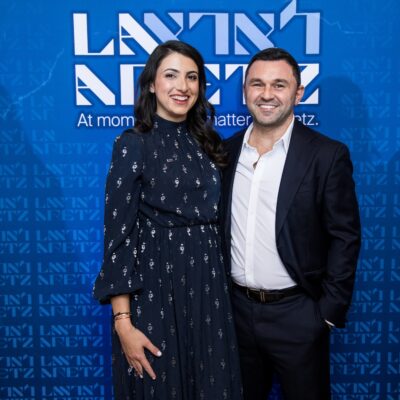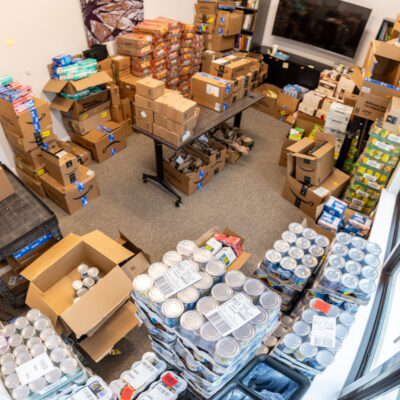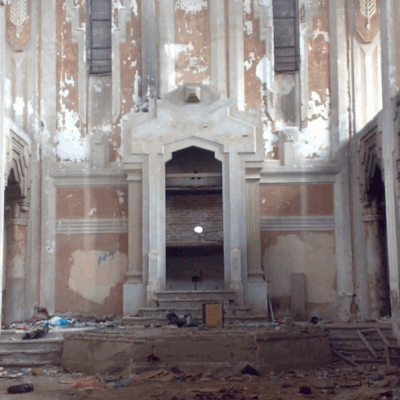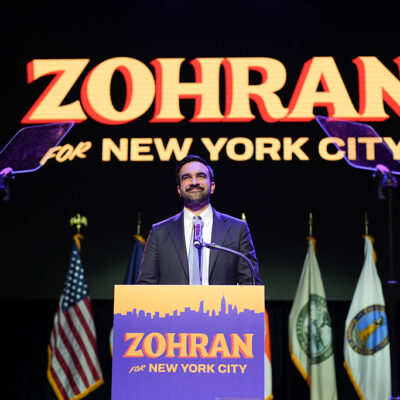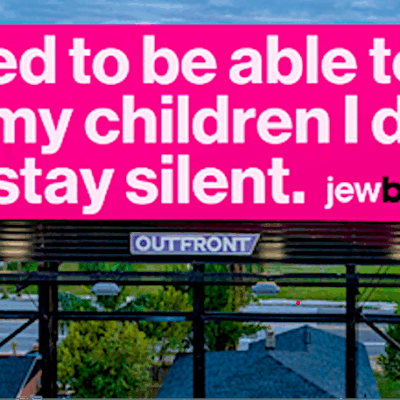Opinion
DOS AND DON'TS
Crafting a covenant for team culture: A consulting case study
A vibrant Reform temple in Morristown, N.J., Temple B’nai Or has experienced considerable changes within its senior team in recent years. As is the case in many congregations and organizations, the tenures of the temple’s staff are varied — from the new education director and preschool director to the cantor who has been with the congregation for over a decade — and this blend of experience and fresh perspectives has brought both opportunities and challenges.

Temple B’nai Or’s Rabbi Michael Satz sees his managerial role as a convener and facilitator, guiding the team to become the best versions of themselves and encouraging ground-up change that aligns with organizational priorities. He aims to foster healthy dialogue and productive disagreement, recognizing that consensus isn’t always possible (or even necessary). With this in mind, the rabbi and board of trustees set a shared goal heading into 2024: to create a more intentional, positive organizational culture while increasing the senior team’s skills in effective collaboration and communications.
We’d like to share insights from the temple’s partnership with Ives Consulting LLC to create a more collaborative, productive and healthy workplace culture for the Temple B’nai Or senior team.
From discovery to a collaborative covenant
To address the temple’s workplace needs, we began the work with a discovery and analysis phase. This helped identify the senior team’s strengths, pain points, readiness for change and potential obstacles. A key insight gained from this phase was that the team members lacked shared principles — each individual approached their work and inter-team relationships differently.
From there, we designed and facilitated a workshop series to address these gaps. A significant outcome of the workshops was the creation of a covenant or brit: a “working agreement” with core values and model principles and behaviors to guide the senior team. The covenant combined professional traits like honesty, growth and responsibility with personal and spiritual values such as care, kindness and recognizing the inherent goodness and spark of divinity in everyone. Similar to a ketubah, this agreement serves as a compass for navigating interactions with and responsibilities to each other.
With a signed covenant in place, the team had a clear framework to guide their language and behavior. The next step was to operationalize these values into practical tools for working together, including staff meetings, program evaluation and responsibility breakdown by job function. As a result of this operationalization process, weekly staff meetings became more organized, collaborative and fruitful. Temple programs are now evaluated with greater rigor and structure, including documenting what lessons learned and changes are needed. Additionally, the senior team members plan to revisit their written job descriptions to ensure that they accurately reflect their roles.
Displaying the covenant in their offices and meeting rooms helps remind them of their shared purpose and vision. With a covenant in place, they have a new sense of continuity and a guide for their interactions. Now the team is focused on continuous growth, learning and improvements.
Continuous growth and learning
For us, change is a journey without a final destination and collaboration is always a work in process. As the sages teach in Pirkei Avot, “It is not your duty to finish the work, but neither are you at liberty to neglect it” (2:16). It’s important for teams to regularly reassess their methods, evaluate joint efforts and strive for ongoing improvement in approach and processes.
Today, the team at Temple B’nai Or is focusing on incremental progress and celebrating small wins. Here is one recent example:
The education director and preschool director noticed that the start time for the Torah Explorers B’Yachad program for families with young children was inconvenient and therefore a barrier to entry for many. Adjusting the start time significantly increased participation, but it also opened up a bigger conversation within the senior team about everyone’s roles within the program, and how to further improve planning to maximize relationship-building with these new families. This demonstrates how small changes can yield outsized results.
Bringing in an outside perspective was a critical factor behind these changes. A third party with the right expertise can help mediate challenging conversations and break teams out of their habits. The team at Temple B’nai Or needed tailored solutions, not something one-size-fits-all, so having a consultant develop customized training and resources enabled them to make progress.
Finally, one of the most valuable lessons the team has learned is that change isn’t about dramatic personal transformations. It’s about finding common ground, using effective and respectful language, and adopting tools that work for people as individuals. Consistency — whether through structured meeting agendas or sticking to established timeframes for programs — is key. Creating and practicing new routines feels more natural the more you do it.
Recommendations for you
If your organization is contemplating bringing in a consultant, here are the top guidelines we have to offer based on our shared experience:
Dos
- Do envision the desired outcomes at the beginning of the project, so you know what you’re working towards. Don’t hire a consultant thinking they’ll diagnose and fix everything. You need to first have an initial understanding of what your organizational challenges are, and what the ideal future state looks like.
- Do review the consultant’s track record and ask detailed questions about their prior experiences, especially as it relates to tackling your specific challenges with analogous organizations. Get specific: What actions did they take with prior institutions and why? How did they gain stakeholder buy-in and support for their proposed solution? What were the outcomes and what did they learn?
- Do trust the vibe. While hard evidence of the consultant’s expertise is critical, also look to your intuition and gut as to whether this consultant will be the right cultural fit for your organization and will be able to work successfully with you and your team. Make sure the consultant demonstrates great listening and communication skills, and will keep you informed of progress and challenges.
- Do be straightforward about the budget early in your discussions. Be respectful of everyone’s time, and communicate what funding will be available for this project. This way, both you and the consultant can ensure this project can work for you both; and if not, no hard feelings because it was clear from the get-go.
- Do get volunteer leadership/board buy-in before hiring a consultant. It is good for the leadership to aware that you are trying to improve the work environment, but they may also have their own expertise that could help. In our case, a temple board member with prior HR and people-management expertise participated in the consultant interview, asked probing questions and provided helpful recommendations that refined the project scope.
Don’ts
- Don’t jump into action without having the consultant first do at least a week of discovery work about your current state (interviewing staff or other relevant groups, reviewing the organization’s current materials/reports, etc.). Otherwise, you and the consultant will miss critical points that should be included in the planning and execution stages. Through our discovery work, for example, we learned that several staff members wanted 1-on-1 coaching and “processing” time with the consultant after each workshop; so we expanded our scope to include this additional activity.
- Don’t accept the consultant’s recommendations if they are a repeat of actions that you’ve tried previously without success. For example, if you’ve already hosted multi-day staff retreats to attempt to solve organizational culture and dynamics issues and the feedback from those events from staff was negative, don’t do the same thing twice — you’re likely to have similar results.
- Don’t expect change to happen overnight. You have to trust in the process and realize that reorienting people and organizations to new cultural values and ways of working together is going to take time — for coming to agreement on shared questions, to processing these changes, to incorporating them in day-to-day work. Be patient, and keep focused on the outcomes you’re aiming for.
Dan Fast is the principal of Ives Consulting LLC, which helps mission-driven businesses and leaders boost their impact and solve their challenges in organizational effectiveness, change strategy, and project management.
Rabbi Michael Satz leads Temple B’nai Or in Morris County, N.J.

 Add EJP on Google
Add EJP on Google